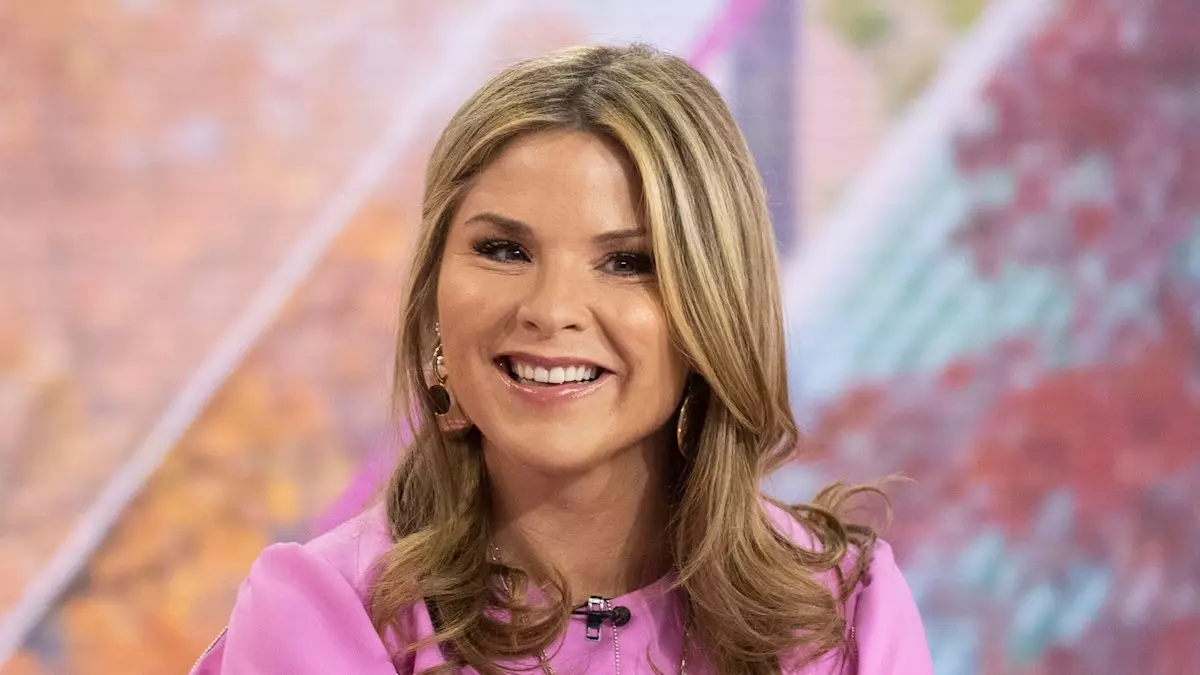The landscape of morning television has always been dynamic, constantly evolving to meet the tastes and expectations of its audience. Recently, Jenna Bush Hager’s segment on the Today show welcomed the indomitable Scarlett Johansson as a guest host, creating a buzz among fans and critics alike. Johansson’s entry into morning television marks a significant moment not only for her but also for the format itself, as she brings an A-list charm and a unique energy that viewers have been clamoring for.
Jenna, a beloved figure on the show, appeared visibly thrilled to co-host with someone of Johansson’s caliber. For many fans, this combination of a well-known actress stepping into an unexpected role provided a delightful twist. Johansson’s participation felt like a breath of fresh air, inviting a blend of Hollywood glamour and engaging storytelling to the usually more serious tones of morning news. The pair quickly established a connection that resonated with audiences, leading to an avalanche of social media responses.
Social media has become the heartbeat of public opinion, especially in the age of television and celebrity culture. Upon her debut, viewers took to platforms like Instagram and Twitter to express their delight at the chemistry between Jenna and Scarlett. Comments reflected their longing for Johansson to transition from a temporary guest into a permanent role, underscoring the viewer’s appetite for engaging and relatable hosts in morning television.
One fan aptly noted that their chemistry was “a lot alike,” emphasizing the dynamic rapport that can often be absent in such shows. The palpable energy between the two showcased how an engaging presentation style could serve as a means of transformation for morning TV, igniting interest in a format that’s often dismissed as mundane.
What added another layer of intrigue to Johansson’s debut was her heartfelt confession to Jenna about her long-held ambition to host a morning show. In a moment that resonated deeply with many viewers, she described how childhood fantasies of play-acting as a news anchor had come to fruition. Reflecting on her youthful days of pretending to address an invisible audience was not just endearing; it provided a candid glimpse into the star’s grounded nature.
“Can you believe it? I’m finally living my dream!” she exclaimed, a sentiment echoed by not only her close friends but also fans who have witnessed her journey from a respected actress to an impactful TV presence. This candidness is crucial in an era where audiences crave authenticity from their celebrities, offering them a refreshing change from traditionally scripted personas.
Jenna has expertly navigated the challenges posed by Hoda Kotb’s recent departure from the show, skillfully enlisting a variety of high-profile guest hosts. ScarJo is just one star among a roster of talented women like Taraji P. Henson, Eva Longoria, and Keke Palmer, each bringing their unique flair to the show’s fourth hour. This approach has not only kept the program engaging but has hinted at a potential new direction for its future.
The presence of these powerful women does more than simply fill Chair B; it cultivates a narrative rich in diversity and skill that both viewers and advertisers alike find enticing. By showcasing a range of guest hosts, the show has successfully kept the audience engaged, providing a platform for stars to showcase their personalities beyond the silver screen.
As Scarlett Johansson continues her run as a co-host until January 24, the anticipation surrounding her possible permanent place at the table reflects an evolving viewership landscape. Fans appear eager for authenticity and engagement with hosts who can connect on a deeper, relatable level.
Jenna and Scarlett’s collaboration not only highlights the potential for an exciting future in morning television but also signals a departure from conventional casting. With the audience’s encouragement and the positive reception of their dynamic, we may very well be on the brink of a new era in which stars like Johansson can seamlessly blend their Hollywood prowess with the relatable charm of daytime television. Through these changes, morning shows can re-emerge as vibrant hubs of culture, conversation, and connection.

